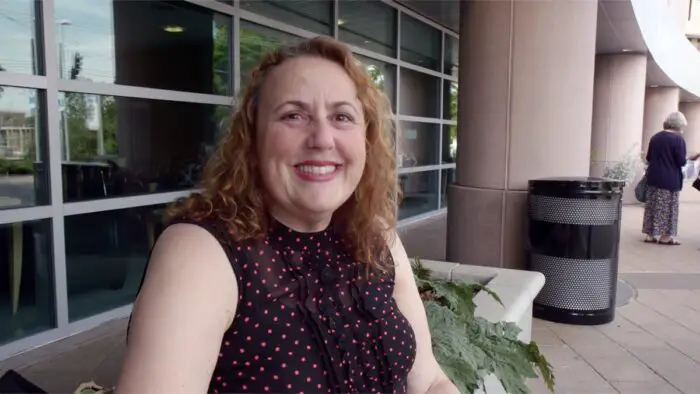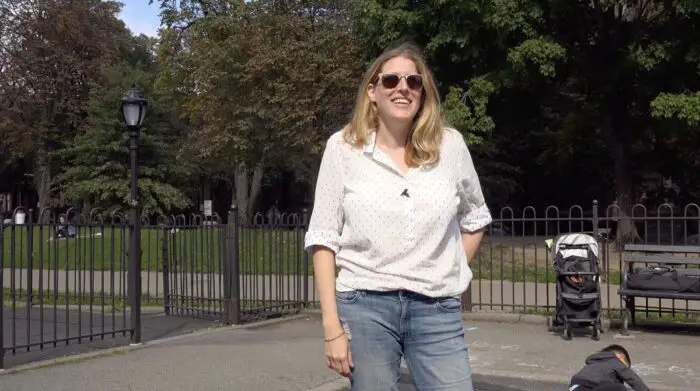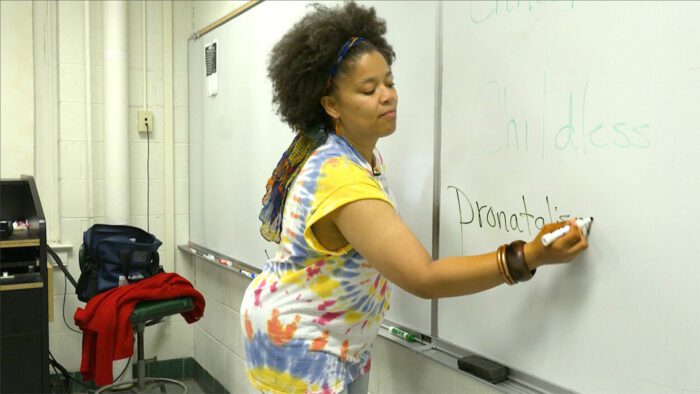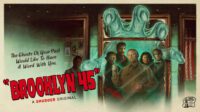The fact that nearly half of adult women in the U.S. aged 15-44 are childless, according to the CDC, is, to some, cause for alarm. To others, celebration. While the conservative right and state legislative bodies seem determined to reduce reproductive freedoms and consider childlessness a moral failing of sorts, the filmmaker and subjects of the new documentary My So-Called Selfish Life are here to explain just how narrow-minded, culturally-ingrained, and ultimately dispiriting such a perspective remains.
The subject is in fact so deeply embedded in the fabric of our society it seems as if it’s ordained; or, at least, that’s what women are often told. There’s a tendency to assume all women want children, that electing not to bear them is a failing of both duty and destiny. But it’s reasonable to wonder: if nearly exactly half of adult women are electing not to have children, doesn’t that demonstrate that theirs is a perfectly viable, rational, intentional, and defensible choice?
Director Therese Shechter, whose prior films I Was a Teenage Feminist (2005) and How to Lose Your Virginity (2013) display a similar cheek, brings together a diverse array of anecdotes, folklore, pop culture, statistics, history, politics, and expert perspectives to illustrate precisely how the notion of motherhood is elevated and cherished in American culture. Nothing against motherhood (I had one, she was great, my wife is mother to my own daughters and she rocks at it), but it’s simply not, as half of the population has learned along with Shecter’s interview subjects, the only path to fulfillment.

The film’s title debunks one of those prevalent myths, that to have a childfree life is somehow “selfish.” Note even the terminology here: childless, the term used by the CDC and frequently unquestioned in popular parlance, denotes a lack, a fault, like mindless, careless, helpless, hopeless. Others prefer the term childfree, a term better characterizing a chosen life free from the obligations of parenting. Also in the lexicon of this discussion range terms from the academic pronatalism (the social, political, and economic promotion of childbearing, sometimes with patriarchal, racist, and/or nationalist implications) or its opposite, antinatalism (though not all childfree people are antinatalist) to pop-portmanteaus like mommyjacking (hijacking a non-child-related conversation or social-media thread to impose a pronatalist perspective).

That last—mommyjacking—is the coinage of one of Shecter’s interviewees, Blair Koenig, founder of the bluntly titled blogsite STFU, Parents (and now a parent herself). All of the subjects—academics, researchers, artists, activists, writers—speak with humor and goodwill towards their life choices and stated intentions. One, Lauren (last name not given), struggles for over five years to seek authorization for a simple a sterilization procedure: she explains, “Most doctors donʼt really view sterilization as a medical need.” They cite her youth (she began the process at 20) as evidence she can’t yet know whether her desires are permanent.
Others feel the brunt of the burden of their race. Kimya Dennis reflects: “A big response that a lot of those of us of African and Hispanic descent receive when we talk about sterilization by choice is that we are confirming what whites want us to do: stop having children, allow the Black family to crumble, allow the Black community to crumble, give into eugenics. Theyʼll say that you donʼt understand whatʼs going on. You donʼt understand the history of our people. And I said I understand all of that. I said, ʻNever question my African identity because Iʼm child-free.ʼ” Clearly, to choose to be childfree is a decision implicated in histories of oppression and dehumanization. Inversely, the promotion of baby-making is sometimes—probably far more than I know—invoked to promote the propagation of a single race in the fear of others.

The subjects of My So-Called Selfish Life are all interesting and, in terms of ethnicity, age, and class, a reasonably diverse lot, if not especially expansive. It might have been interesting to hear the perspectives of athletes or industry titans whose decisions were motivated by a different set of concerns. Or a bit more from the pronatalist perspective, just to hear the argument, even if its presence on the airwaves, the internets, and playgrounds seems ubiquitous.
A documentary like this will certainly play well with its intended audience: those who, like each of the subjects in the film, have consciously made the choice to live childfree but who have been maligned or stigmatized in social circles and mainstream media. There were a few fleeting moments when I wondered to myself Who doesn’t already know this? and realized the answer was simple: legislators in dozens of states, bloggers, pronatalists, mommyjackers, and more. My So-Called Selfish Life ought to be required viewing for all of them, though my guess is that their beliefs are so deeply ingrained it will take far more than a well-reasoned, well-researched documentary like this to change them.
For those who do see the film—whether on demand, in an introductory gender-studies or sociology class, in a community screening, or elsewhere—they’ll find a a briskly humorous and intentionally intersectional take on a taboo that need not be one. Over the decades, birth rates have ebbed and flowed, and it’s true that more women than ever are choosing to live their lives childfree. For many of them, including each of the subjects here, it’s a choice worth validation, even in the face of thoughtless words and cultural critics who are convinced that to bear a child is the only way for a woman to flourish.
My So-Called Selfish Life is available for community and classroom screenings via educational distributor GOOD DOCS and for personal rental on demand on Vimeo.



